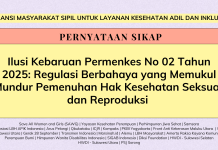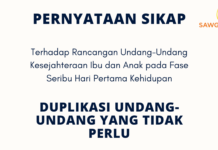By Sara Barnes
![]() Activism traditionally takes place in public space, the arena available to everyday citizens for interaction. The scope of interactions which are possible within this space is governed by the government and by the society which engages within it. The government uses constitutional constraints and criminal laws to regulate what is allowed in this space. Ayoob theorises that the provision and regulation of public space can be used by governments to limit activities which are considered extreme (2008). By allowing the majority of people to express their opinions and interact without fear, more radical ideologies find it harder to gain followers. In addition the limitations imposed by government make it difficult for those ideologies considered extreme or to be a danger to the current regime. Societal norms further regulate this public space by determining which topics or activities succeed in holding the public space. In Indonesia public space tends to be dominated by Islamic organisations (Hashemi, 2009). The majority of Indonesians identify as Muslim. The official separation between state and religion means that the public activities and political views of these groups are relegated to the public space. While other groups can access public space they are limited by the societal construct of predominantly Islamic thinking. This majority group thus governs the norms of the public space and limits the ideas which can be freely expressed within it.
Activism traditionally takes place in public space, the arena available to everyday citizens for interaction. The scope of interactions which are possible within this space is governed by the government and by the society which engages within it. The government uses constitutional constraints and criminal laws to regulate what is allowed in this space. Ayoob theorises that the provision and regulation of public space can be used by governments to limit activities which are considered extreme (2008). By allowing the majority of people to express their opinions and interact without fear, more radical ideologies find it harder to gain followers. In addition the limitations imposed by government make it difficult for those ideologies considered extreme or to be a danger to the current regime. Societal norms further regulate this public space by determining which topics or activities succeed in holding the public space. In Indonesia public space tends to be dominated by Islamic organisations (Hashemi, 2009). The majority of Indonesians identify as Muslim. The official separation between state and religion means that the public activities and political views of these groups are relegated to the public space. While other groups can access public space they are limited by the societal construct of predominantly Islamic thinking. This majority group thus governs the norms of the public space and limits the ideas which can be freely expressed within it.
In this way certain groups and ideas fall into the ‘extreme’ category and are excluded by either government controlled constitutional constraints and criminal laws or by societal norms in a predominantly Islamic context. Women’s rights, reproductive and sexuality rights often fall into the extreme and/or excluded minority. It is important to determine why this is and the degree to which each of the government and society are labelling these rights as extreme so as to determine the best approach to change this categorisation. In most cases both the government and society play a role but to differing degrees. For example there is no government law preventing or encouraging sexuality education, as such societal norms govern what information is made available in the public space, to whom and how. Recognising this, activists can take a two-pronged approach. They can encourage government to include sexuality education within school syllabus and they can attempt to normalise discussions around sexuality in the public space.
As discussed last week there seems to be an incredible apathy within government with regards to these issues and it is unclear whether societal norms classify these issues as extremist or simply unimportant. The distinction between extreme or unimportant is imperative here to determining the course of action taken by activists. Is it better to infiltrate the majority who control the available public space or to be an increasingly loud minority demanding the government’s attention?
References:
Mohammed Ayoob, 2008, The Many Faces of Political Islam, Singapore: NUS Press, 92 – 107
Nader Hashemi, 2009, Islam, Secularism and Liberal Democracy, New York: Oxford University Press, 158-165









